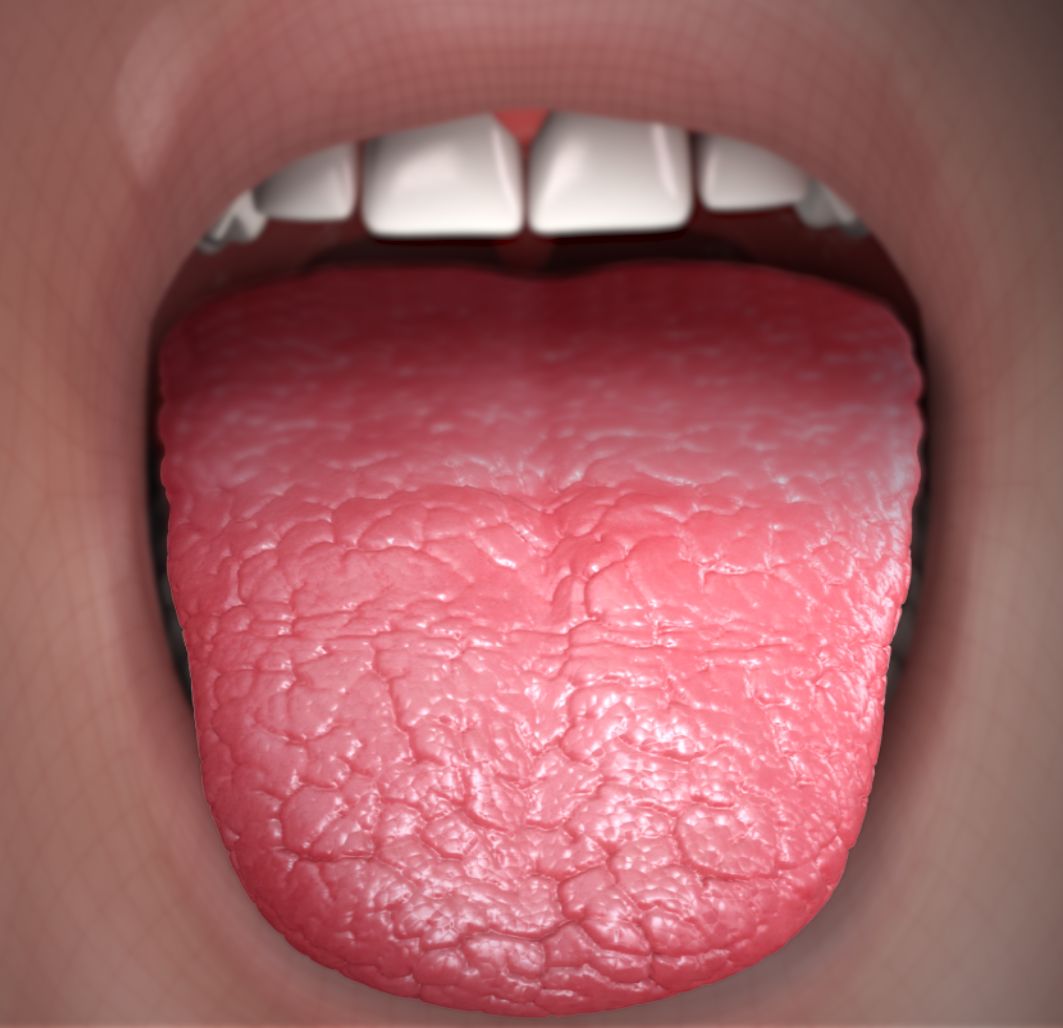Xerostomia
Editor-In-Chief: Prab R Tumpati, MD
Obesity, Sleep & Internal medicine
Founder, WikiMD Wellnesspedia &
W8MD medical weight loss NYC and sleep center NYC
| Xerostomia | |
|---|---|

| |
| Synonyms | Dry mouth, hyposalivation, pasties |
| Pronounce | N/A |
| Specialty | N/A |
| Symptoms | Dry mouth, difficulty swallowing, bad breath, altered taste |
| Complications | Dental caries, oral infections, dysphagia |
| Onset | Can occur at any age, more common in older adults |
| Duration | Can be temporary or chronic |
| Types | N/A |
| Causes | Medications, radiation therapy, autoimmune diseases |
| Risks | Smoking, alcohol consumption, dehydration |
| Diagnosis | Clinical examination, salivary flow test |
| Differential diagnosis | Sjogren's syndrome, diabetes mellitus, HIV/AIDS |
| Prevention | N/A |
| Treatment | Saliva substitutes, sugar-free gum, hydration |
| Medication | Pilocarpine, cevimeline |
| Prognosis | N/A |
| Frequency | Common, especially in older adults |
| Deaths | N/A |
Condition of dry mouth due to reduced or absent saliva flow
Xerostomia, commonly known as dry mouth, is a condition characterized by a decrease in saliva production. This can lead to difficulties in speaking, eating, and swallowing, as well as an increased risk of dental decay and oral infections.
Causes[edit | edit source]
Xerostomia can result from various factors, including:
- Medications: Many prescription and over-the-counter drugs can cause dry mouth as a side effect. These include antihistamines, decongestants, pain medications, diuretics, and antidepressants.
- Medical conditions: Diseases such as Sjogren's syndrome, diabetes mellitus, HIV/AIDS, and Parkinson's disease can lead to xerostomia.
- Radiation therapy: Patients undergoing radiation treatment for head and neck cancers may experience damage to the salivary glands, resulting in reduced saliva production.
- Dehydration: Insufficient fluid intake or conditions that cause excessive fluid loss, such as fever, sweating, vomiting, diarrhea, blood loss, or burns, can lead to dry mouth.
- Lifestyle factors: Smoking or chewing tobacco and alcohol consumption can exacerbate dry mouth symptoms.
Symptoms[edit | edit source]
The symptoms of xerostomia can vary in severity and may include:
- A sticky, dry feeling in the mouth
- Frequent thirst
- Sores or split skin at the corners of the mouth
- Cracked lips
- A dry, rough tongue
- A burning or tingling sensation in the mouth
- Difficulty chewing, speaking, and swallowing
- Hoarseness, dry nasal passages, and sore throat
Diagnosis[edit | edit source]
Diagnosis of xerostomia typically involves a thorough medical history and physical examination. Healthcare providers may also perform tests to measure saliva flow and assess the health of the salivary glands. Imaging studies or biopsies may be conducted if an underlying condition is suspected.
Management[edit | edit source]
Management of xerostomia focuses on relieving symptoms and preventing complications. Strategies include:
- Hydration: Increasing fluid intake can help alleviate dry mouth symptoms.
- Saliva substitutes: Over-the-counter saliva substitutes and mouthwashes can provide temporary relief.
- Stimulation of saliva production: Chewing sugar-free gum or sucking on sugar-free candies can stimulate saliva flow.
- Medications: Prescription medications such as pilocarpine or cevimeline may be used to stimulate saliva production in certain cases.
- Oral hygiene: Maintaining good oral hygiene is crucial to prevent dental decay and infections. Regular dental check-ups are recommended.
Complications[edit | edit source]
If left untreated, xerostomia can lead to several complications, including:
- Increased risk of dental caries
- Oral infections such as candidiasis
- Difficulty in wearing dentures
- Nutritional deficiencies due to difficulty in eating
Prevention[edit | edit source]
Preventive measures for xerostomia include:
- Avoiding tobacco and alcohol
- Using a humidifier to add moisture to the air
- Practicing good oral hygiene
- Regular dental visits
See also[edit | edit source]
Search WikiMD
Ad.Tired of being Overweight? Try W8MD's physician weight loss program.
Semaglutide (Ozempic / Wegovy and Tirzepatide (Mounjaro / Zepbound) available.
Advertise on WikiMD
|
WikiMD's Wellness Encyclopedia |
| Let Food Be Thy Medicine Medicine Thy Food - Hippocrates |
Translate this page: - East Asian
中文,
日本,
한국어,
South Asian
हिन्दी,
தமிழ்,
తెలుగు,
Urdu,
ಕನ್ನಡ,
Southeast Asian
Indonesian,
Vietnamese,
Thai,
မြန်မာဘာသာ,
বাংলা
European
español,
Deutsch,
français,
Greek,
português do Brasil,
polski,
română,
русский,
Nederlands,
norsk,
svenska,
suomi,
Italian
Middle Eastern & African
عربى,
Turkish,
Persian,
Hebrew,
Afrikaans,
isiZulu,
Kiswahili,
Other
Bulgarian,
Hungarian,
Czech,
Swedish,
മലയാളം,
मराठी,
ਪੰਜਾਬੀ,
ગુજરાતી,
Portuguese,
Ukrainian
Medical Disclaimer: WikiMD is not a substitute for professional medical advice. The information on WikiMD is provided as an information resource only, may be incorrect, outdated or misleading, and is not to be used or relied on for any diagnostic or treatment purposes. Please consult your health care provider before making any healthcare decisions or for guidance about a specific medical condition. WikiMD expressly disclaims responsibility, and shall have no liability, for any damages, loss, injury, or liability whatsoever suffered as a result of your reliance on the information contained in this site. By visiting this site you agree to the foregoing terms and conditions, which may from time to time be changed or supplemented by WikiMD. If you do not agree to the foregoing terms and conditions, you should not enter or use this site. See full disclaimer.
Credits:Most images are courtesy of Wikimedia commons, and templates, categories Wikipedia, licensed under CC BY SA or similar.
Contributors: Prab R. Tumpati, MD


